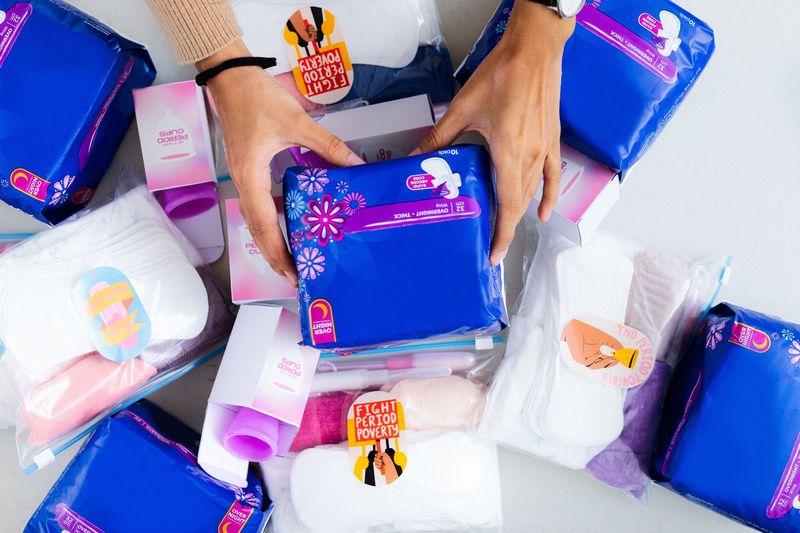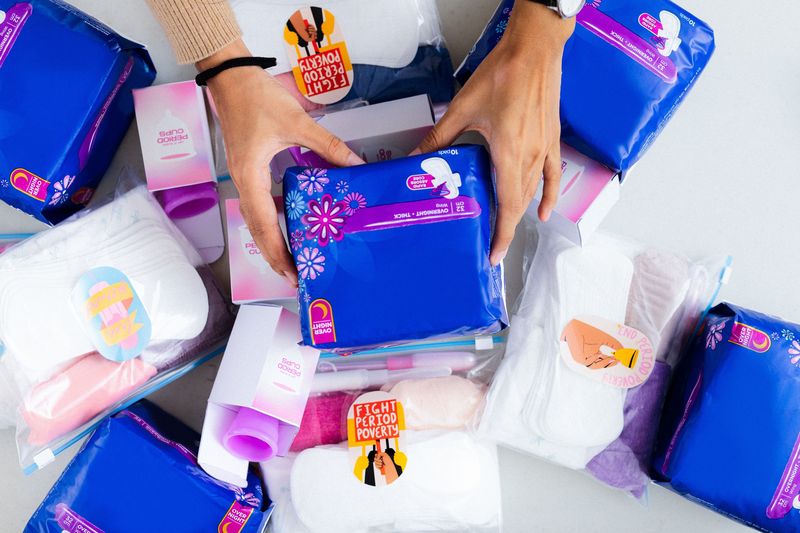University of Dundee tackling Period Poverty
We are delighted to share this case study from the University of Dundee about the work they have done to ensure provision of recycled and reusable sanitary products on campus. With the right to free sanitary products in public spaces across Scotland now enshrined in law, the university’s work in this area will aim to address multiple Sustainable Development Goals – from ending poverty to gender equality.

After successfully implementing a pilot scheme prior to the Scottish Government’s Period Products (Free Provision) (Scotland) Bill, the University of Dundee can now order and deliver recycled and reusable sanitary products across each campus. Therefore, the University is supporting the circular economy and promoting the United Nations Sustainable Development Goals. With our new Contract Award direct with Banner, the University can supply these products to staff and students under APUC’S JAN1011 AP: Cleaning & Janitorial Products Framework.




EAUC-Scotland previously published resources and presentations from meetings held during the first year of Scotland's Sanitary Support Scheme.

After successfully implementing a pilot scheme prior to the Scottish Government’s Period Products (Free Provision) (Scotland) Bill, the University of Dundee can now order and deliver recycled and reusable sanitary products across each campus. Therefore, the University is supporting the circular economy and promoting the United Nations Sustainable Development Goals. With our new Contract Award direct with Banner, the University can supply these products to staff and students under APUC’S JAN1011 AP: Cleaning & Janitorial Products Framework.
Sharon Sweeny – Institutional Lead for Period Power
The University has successfully addressed the issue of period poverty for staff and students, and has increased the accessibility of basic products, towards the achievement of Sustainable Development Goal 1 (No Poverty). By expanding the Sanitary Support Scheme and making it inclusive, e.g. promoting non-gender specific reusable products, the University is helping reduce inequalities for students and staff from different socioeconomic backgrounds and promoting gender equality contributing to Sustainable Development Goals 5 (Gender Equality) and 10 (Reduced Inequalities).
Trudy Cunningham – Environment, Sustainability & Waste Manager
The University of Dundee is one of the first in Scotland to provide and deliver a full range of recycled, reusable, and organic sanitary products. The average user throws away 125-150kg of tampons, pads and applicators in their lifetime, with most containing plastic – 90% of a pad and 6% of a tampon being plastic. Using less single-use plastic reduces waste and creates a positive impact on the environmental impact in manufacturing, supporting Sustainable Development Goal 12 (Responsible Consumption and Production). Nearly 5 million tampons and pads are flushed every day in the UK, which can be avoided by switching to reusable products.
Jim O’Hara – Banner Contract Manager
The client’s environmental and sustainable objectives were made clear at tender stage and this matched perfectly with our stated aim to promote environmentally friendly, sustainable, re-useable and ethically sourced products across the University – wherever appropriate. There is no doubt that the recycling of and reusing products of this nature positively impacts the environment and allows students to make a genuine change for future generations. The benefits associated with the use of Reusable Sanitary Products include:
• Reduced plastic & energy consumption – in manufacturing
• Reduced water consumption – fewer sewer blockages
• Reduced product toxins
• Reduced cost & increased performance
Within our industry, Banner is making huge contributions to helping the environment and improving sustainable practices by streamlining our services and consolidating deliveries to reduce carbon output. Further innovative practices, which reduce waste streams, include pioneering manufacturing processes, implementation of electronic ordering, recycling packaging, reducing outer packaging and enhanced dispensing. We look forward to completing many other future initiatives with the University of Dundee.




EAUC-Scotland previously published resources and presentations from meetings held during the first year of Scotland's Sanitary Support Scheme.













